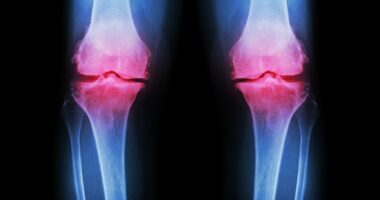Share this @internewscast.com
Alzheimer’s sufferers may soon be able to receive a diagnosis for the disease years before symptoms appear, thanks to a groundbreaking new blood test.
Scientists believe a new blood test capable of measuring levels of a known marker protein that precedes the development of the debilitating neurodegenerative disease.
A study by Alzheimer’s researchers has found that, instead of using an invasive procedure to test cerebrospinal fluid, medics may only need to measure levels of a protein named p-tau217.
The protein is present in the blood, and measuring it could provide a more accurate diagnostic tool than current tests and others currently in development.
Experts have hailed the results as a discovery that could “ultimately bring us closer towards a cure for dementia”.
Researchers studying 786 participants found they could use the new test – known as the ALZpath p-tau217 test – to identify people with varying chances of developing Alzheimer’s.
The study found the new test could identify people as likely, intermediate and unlikely to develop the disease.
Dr Richard Oakley, the associate director of research and innovation at the Alzheimer’s Society, said the findings were a “hugely welcome step in the right direction” for Alzheimer’s diagnosis.
He said the research proved the ALZpath p-tau217 test is “just as accurate as more invasive and expensive tests at predicting if someone has features of Alzheimer’s disease in their brain”.
Dr Oakley added: “Furthermore, it suggests results from these tests could be clear enough to not require further follow-up investigations for some people living with Alzheimer’s disease, which could speed up the diagnosis pathway significantly in future.”
Dr Sheona Scales, director of research at Alzheimer’s Research UK, was similarly hopeful, saying the findings add to a “growing body of evidence that this particular test has huge potential to revolutionise diagnosis for people with suspected Alzheimer’s.”
She added that a quick and accurate diagnosis would “ultimately bring us closer towards a cure for dementia”.
Doctors currently use much more expensive and intrusive techniques to identify the clumps of proteins that precede Alzheimer’s, namely a lumbar puncture.
Lumbar punctures measure the presence of proteins in people’s cerebrospinal fluid.
The process is invasive, however, and requires doctors to insert a large needle in between bones in the lower back to extract the fluid.
While the new test is a step in the right direction, it is far from a surefire success, with additional research required to truly determine its effectiveness.
Dr Oakley said: “We still need to see more research across different communities to understand how effective these blood tests are across everyone who lives with Alzheimer’s disease.”














